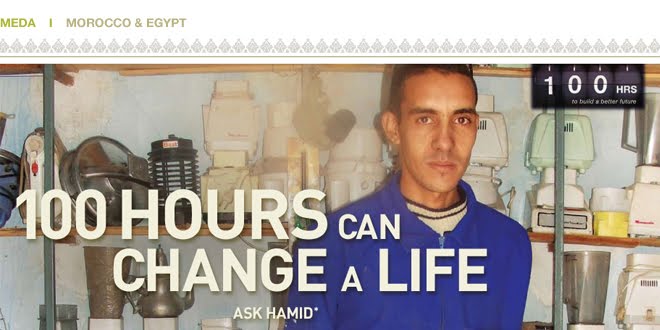 Fahim, 25, is one of a family of six. He left high school to work with his father in poultry farming, but the business failed. Fahim enrolled in ITA, the Institute of Applied Technology, where he studies motor vehicle repair.
Fahim, 25, is one of a family of six. He left high school to work with his father in poultry farming, but the business failed. Fahim enrolled in ITA, the Institute of Applied Technology, where he studies motor vehicle repair.“The poultry project failed because I did not know how to manage it. I didn't even know the first thing about planning. I behaved badly with the suppliers and did not know how to treat customers. Besides, I had no experience or training in this domain, so I made many errors."
“MEDA's 100 Hours to Success training helped me a lot. Even if I had many ideas and means to initiate them, I did not trust my skills to realize my project and make it a success, and I was not well organized. Now, I record my income and expenses in a book to follow them, and I set up a plan to help me realize my ideas."
"My goal is to earn my diploma from ITA and work one year at a garage to acquire some experience. Then I would like to open my own garage for car repair. With what I have learned, I am sure that this time my business will be a success."



